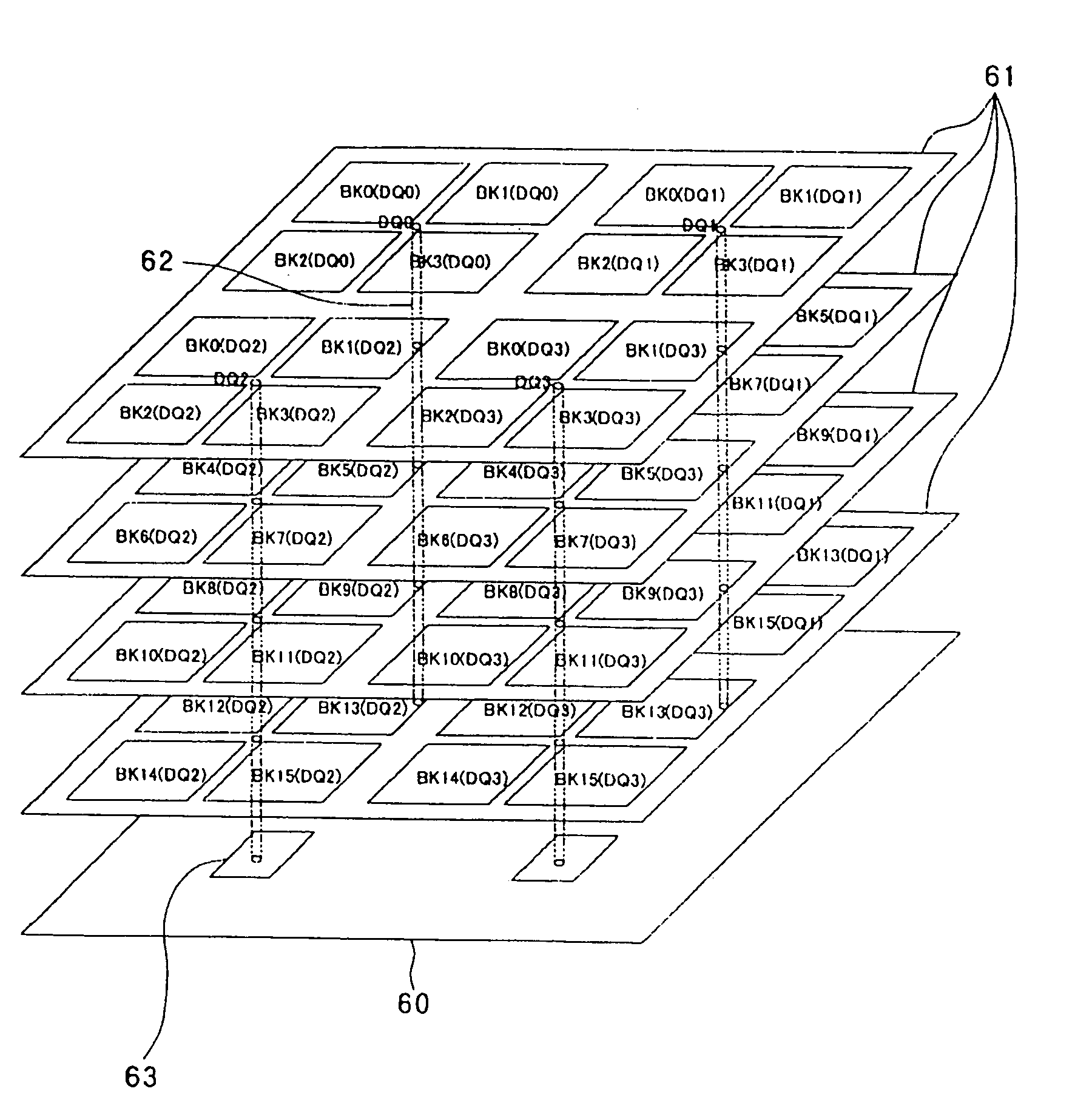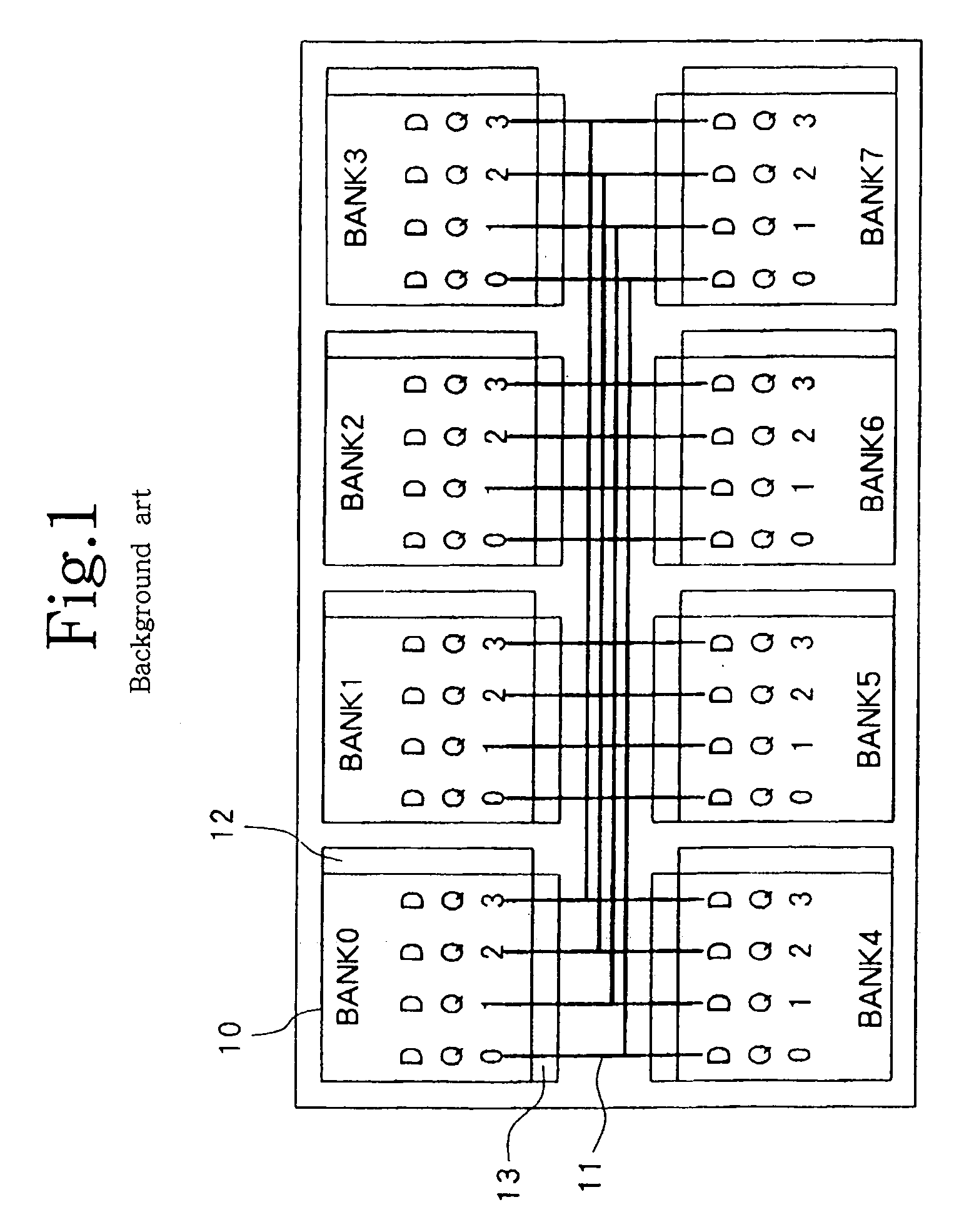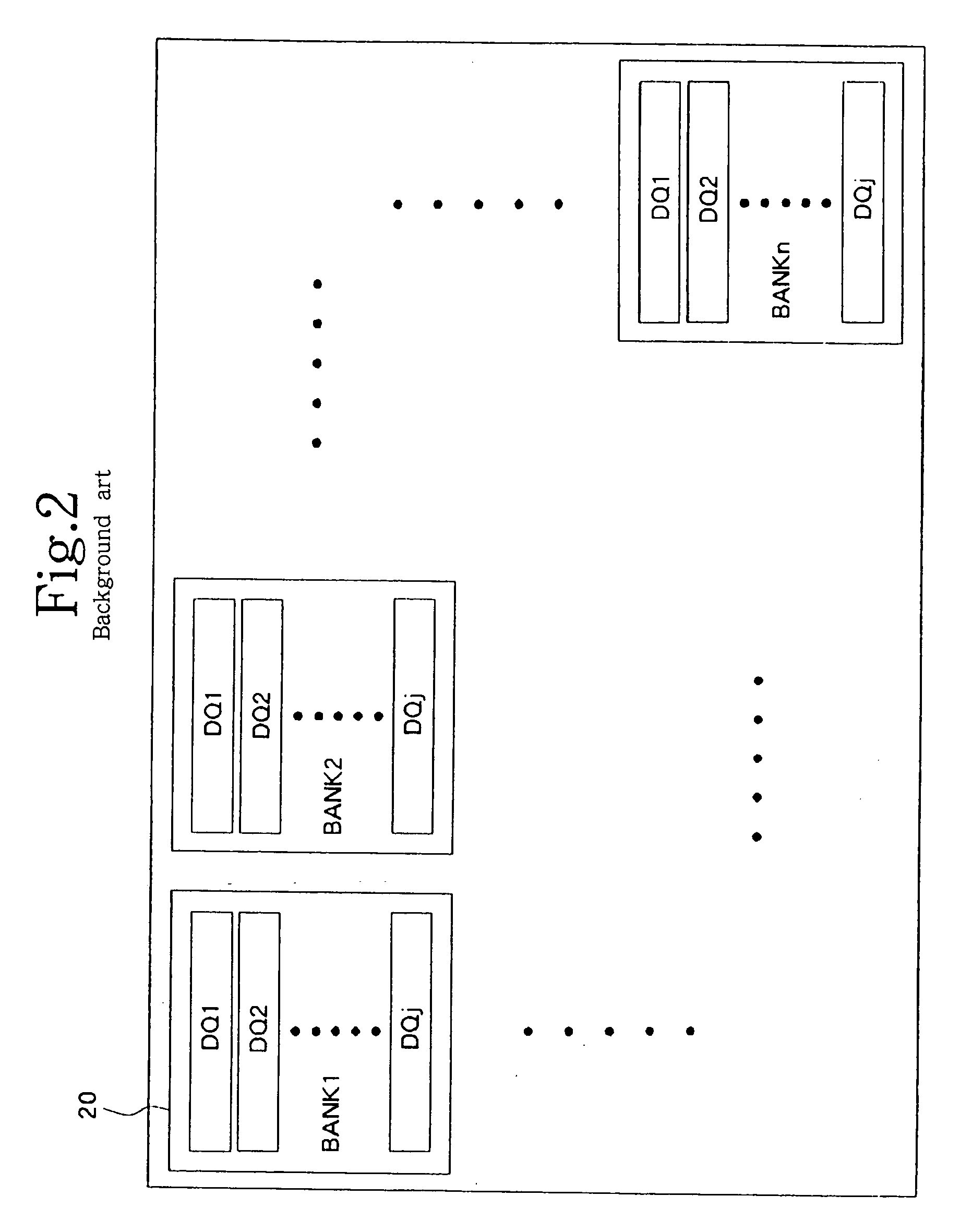Stacked semiconductor memory device
a memory device and semiconductor technology, applied in memory devices, basic electric elements, instruments, etc., can solve the problems of increasing power consumption of memory devices, and reducing the power consumption of three-dimensional semiconductor memory devices. , the effect of reducing the length of chip in-plane dq lines and the number of interchip interconnections
- Summary
- Abstract
- Description
- Claims
- Application Information
AI Technical Summary
Benefits of technology
Problems solved by technology
Method used
Image
Examples
working example 1
[0043]FIG. 4 shows the configuration of the first working example of a stacked semiconductor memory device according to the present invention.
[0044]In the present working example, memory cell array chip 31, which is DRAM having a memory capacity of 512 Mb, is stacked on interface chip 30 on which integrated circuits are provided for interfacing with the outside. Memory cell array chip 31 has four input / output bits DQ0, DQ1, DQ2, and DQ3, and four banks BK0, BK1, BK2, and BK3.
[0045]Each bank is divided into four, which is the number of input / output bits. For example, bank BK0 is divided into the four sub-banks: BK0 (DQ0) that is composed of the memory cells of DQ0, BK0 (DQ1) that is composed of the memory cells of DQ1, BK0 (DQ2) that is composed of the memory cells of DQ2, and BK0 (DQ3) that is composed of the memory cells of DQ3. Banks BK1, BK2, and BK3 are similarly divided into the sub-banks BK1 (DQ0)-BK1 (DQ3), BK2 (DQ0)-BK2 (DQ3), and BK3 (DQ0)-BK3 (DQ3), respectively, resulting...
working example 2
[0050]The following explanation regards the second working example of the present invention with reference to FIG. 6. FIG. 6 shows the configuration of a three-dimensional semiconductor DRAM device. In the present working example, memory cell array chips 51 of DRAM having a memory capacity of 512 Mb are stacked on interface chip 50 in which interface circuits with the outside are integrated.
[0051]All of memory cell array chips 51 have the same configuration with four input / output bits DQ0, DQ1, DQ2, and DQ3, and four banks BK0, BK1, BK2, and BK3. Each bank is divided into four, which is the number of input / output bits. For example, bank BK0 is divided into the four sub-banks: BK0 (DQ0) that is composed of the memory cells of DQ0; BK0 (DQ1) that is composed of the memory cells of DQ1; BK0 (DQ2) that is composed of the memory cells of DQ2; and BK0 (DQ3) that is composed of the memory cells of DQ3. BK1 (DQ0)-BK1 (DQ3), BK2 (DQ0)-BK2 (DQ3), and BK3 (DQ0)-BK3 (DQ3) are similarly divided,...
working example 3
[0055]The following explanation regards the third working example of the present invention with reference to FIG. 7. FIG. 7 shows the configuration of a three-dimensional semiconductor DRAM device, which is the third working example of the present invention. In the present working example, four memory cell array chips 61 that are DRAM having a memory capacity of 512 Mb are stacked on interface chip 60, on which interface circuits that connect with the outside are integrated. Memory cell array chips 61 are composed of memory cell arrays having four input / output bits and four banks.
[0056]Although all memory cell array chips 51 have the same memory configuration in the second working example, in the present working example, the chips have four different banks on each chip. In other words, the memory configuration of the four stacked DRAM devices includes four input / output bits DQ0, DQ1, DQ2, and DQ3, and 16 banks from BK0–BK15. Each bank is then divided into four parts, which is the nu...
PUM
 Login to View More
Login to View More Abstract
Description
Claims
Application Information
 Login to View More
Login to View More - R&D
- Intellectual Property
- Life Sciences
- Materials
- Tech Scout
- Unparalleled Data Quality
- Higher Quality Content
- 60% Fewer Hallucinations
Browse by: Latest US Patents, China's latest patents, Technical Efficacy Thesaurus, Application Domain, Technology Topic, Popular Technical Reports.
© 2025 PatSnap. All rights reserved.Legal|Privacy policy|Modern Slavery Act Transparency Statement|Sitemap|About US| Contact US: help@patsnap.com



